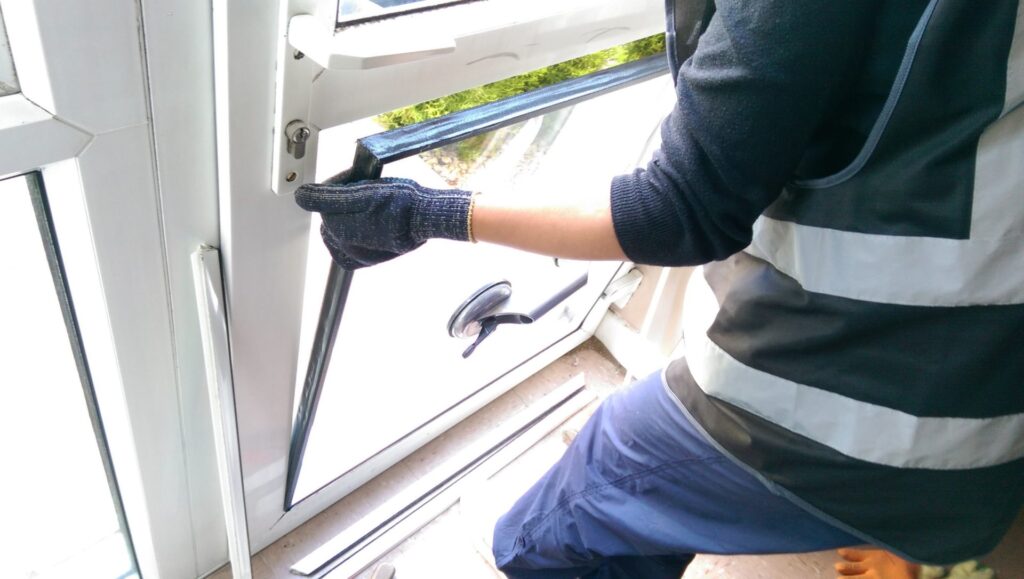
12
JulyThe 10 Scariest Things About Residential Window Repair
Residential Window Repair: A Comprehensive Guide
Windows are an important part of any home, supplying light, ventilation, and a view of the outside world. However, like any other component of a house, windows can end up being harmed gradually, requiring repairs to maintain their functionality and aesthetics. This short article intends to offer house owners with an extensive understanding of residential window repair, covering common problems, repair methods, and preventive measures.
Common Window Problems
Before delving into repair techniques, it's vital to recognize some of the most typical window problems that homeowners may encounter:

- Drafts and Air Leaks: Windows can develop spaces due to degrading seals, permitting cold air to enter and warm air to escape.
- Broken Glass: Impact from debris or weather condition phenomena can lead to split or shattered glass panes.
- Decaying Frames: Wooden window frames can struggle with rot due to extended direct exposure to moisture.
- Misalignment: Windows may become misaligned gradually, making them difficult to open or close effectively.
- Foggy or Cloudy Glass: This issue often emerges in double-paned windows when the seal fails, resulting in condensation in between the panes.
| Problem | Description | Possible Solution |
|---|---|---|
| Drafts and Air Leaks | Air enters/escapes through gaps | Reseal or caulk windows |
| Broken Glass | Cracked or shattered panes | Replace the glass |
| Decomposing Frames | Decay due to moisture | Change or repair the frame |
| Misalignment | Window does not open/close effectively | Straighten or replace the window hardware |
| Foggy Glass | Condensation in between panes | Replace the insulated glass system (IGU) |
Repairing Common Window Issues
1. Sealing Drafts and Air Leaks
To resolve drafts, house owners can follow these steps:
- Inspection: Check for gaps around the window frame.
- Sealant Application: Use high-quality caulk to fill spaces and fractures. Ensure the surface area is tidy and dry before application.
- Weatherstripping: Apply weatherstripping to the movable parts of the window to reduce air leakages.
2. Changing Broken Glass
Broken glass ought to be changed as soon as possible to prevent injury and further damage. Steps consist of:
- Remove the Broken Glass: Use gloves for safety. Thoroughly remove any broken shards from the frame.
- Step and Cut New Glass: Measure the opening properly and have a new pane cut to size.
- Set Up New Glass: Set the new glass pane into the frame utilizing glazing putty or silicone adhesive for a safe fit.
3. Fixing or Replacing Rotting Frames
Wood frames with rot can compromise the window's structural stability. While minor decaying can be fixed, severe decay needs replacement:
- Assess the Damage: Identify just how much of the frame needs repair or replacement.
- Use Epoxy: For small damage, use a wood epoxy to restore the frame.
- Replacement: For comprehensive damage, get rid of the decomposing frame areas and set up brand-new wood or think about changing the entire window.
4. Realigning Misaligned Windows
Windows that are misaligned can frequently be adjusted:
- Check the Hinges and Tracks: Inspect for damage or use on the hinges or tracks.
- Change the Hardware: Tighten or reposition screws on hinges or adjust the window tracks to straighten.
- Check the Window: Open and close the window to make sure smooth operation.
5. Fixing Foggy Glass
Foggy windows generally suggest an unsuccessful seal in double-pane windows, requiring replacement:
- Identify the Issue: Confirm that the fogging is because of a seal failure.
- Change the IGU: Consult a professional for the replacement of the insulated glass unit.
Preventive Measures for Window Maintenance
Prevention is always more workable than repair. House owners can take several proactive steps to reduce window damage:
- Regular Inspections: Conduct seasonal checks for indications of wear or damage.
- Tidy Frames and Glass: Keep frames devoid of dirt, particles, and moisture, which can deteriorate materials.
- Repaint Wooden Frames: Apply a fresh coat of paint or sealant every few years to protect wooden frames from rot.
- Screen Weatherstripping: Regularly check and replace weatherstripping as needed to maintain energy effectiveness.
- Address Leaks Promptly: Tackle small leakages and concerns immediately to avoid more substantial problems down the line.
Often Asked Questions
1. Can I repair my windows myself?
Yes, lots of common window repairs can be carried out by property owners with basic tools and a little patience. However, complicated repairs, especially those including glass replacement or structural issues, ought to be delegated specialists.
2. When should I change my windows rather of fixing them?
If windows are constantly drafty, foggy, or structurally harmed, it might be more cost-efficient to replace them. In addition, windows that are over 15-20 years old might benefit from an upgrade to more energy-efficient designs.
3. How can I improve my window's energy efficiency?
Consider adding storm windows, applying window movie, or setting up energy-efficient blinds and shades. Routine maintenance, like resealing and weatherstripping, can also improve energy effectiveness.
4. Exist various kinds of caulk for window repairs?
Yes, there are different types of caulk readily available, including silicone, latex, and polyurethane. Pick a water resistant, flexible caulk for long-lasting sealing in exterior applications.

5. How frequently should I examine my windows?
It is recommended to inspect your windows at least twice a year, preferably in the spring and fall, to capture any prospective issues before they become more serious.
Residential window repair is not only essential for preserving a home's visual and functionality but also plays a vital function in energy efficiency and expense savings. By acquainting themselves with typical window issues, proper repair strategies, and preventive steps, homeowners can guarantee the durability of their windows. Whether dealing with minor repairs or seeking professional support, proactive window maintenance is essential to a comfortable and efficient home environment.

Reviews